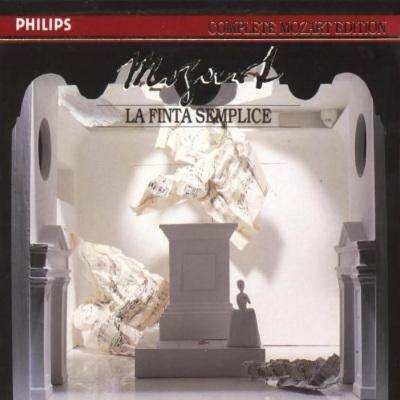
Mozart: La finta semplice
At first La finta semplice may seem to be no less than a miracle, or at least a Very Remarkable Phenomenon. That a 12-year-old could have the creativity and technical skill to write such music defies the normal limits of credulity. Still, that does not necessarily testify to its value. Ignore or forget the biographical fact and listen to it on its own merits (if one can ever do simply that), and then I think that on first, second or perhaps even third encounter one might smile and pass on. The boy, after all, was responsible for only the musical part of the entertainment, prestigious elders (Goldoni among them) having supplied the play, which at best is trivial and at worst heartless... So it is an additional marvel that the 12-year-old's genius can not merely persuade his listeners to tolerate the silly play but to come back for that further encounter which begins to touch the soul with a sense of what by any standards is a refined and exquisite beauty. Sample Rosina's 'echo' aria (''Senti l'eco'', No. 9). This is a fairly slow aria (Andante un poco adagio) in E flat, with something of ''Porgi, amor'' about it. The obbligato instruments are an oboe and two horns. The third phrase (''sussurrar tra fiori e fronde'') introduces a delicious murmuring of strings, not remote in effect from the 'breezes' trio in Cosi fan tutte. A B-section (allegro grazioso) renews charmingly the comic idiom native to the opera. But then with the return of the 'echo' melody, now at a lower pitch, its melodic and harmonic development has a new depth and poignancy, and the soul is touched. There are many such points—a lovely one, for instance, in the finale of Act 3 where a penitent interpolation by one of the girls (''Fu colpo d'amore'') is almost as moving as ''Contessa, perdona'' in Le nozze di Figaro. The longer one were to stay with this apprentice-work, the more apparent would be the master's hand throughout. -- Gramophone [11/1991]
